The notion is that ‘beauty sleep’ is a myth.
The reality is that getting the correct amount of sleep is the key to beautiful, healthy skin that lasts.
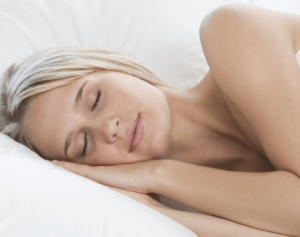
Sleep For Better Skin:
Science is telling us that we need to get sleep for better skin, and getting a good nights sleep is essential for repairing, renewing and restructuring the skin. The quality and length of sleep that your body receives every night can have a direct impact on your skin’s overall health.
For adults the minimum amount of sleep that is recommended is six hours with eight hours being the optimum, it is thought that only 32 percent of adults realize this, and it is believed that 50 percent of people struggle to get a ‘good’ nights sleep.
When we sleep our bodies recharge, but not only do our bodies recharge, but our skin does as well. While we sleep, we heal, restore and eliminate toxins from the skin. The association between good skin and sleep is ever-growing and has prompted many brands to develop products that achieve the best results when you are sleeping or are improved by a good night’s sleep.
It has been proved that skin cell renewal takes place when your body is sleeping, suggesting that your skin’s appearance is better post-rest.
Your Best Skin Yet:
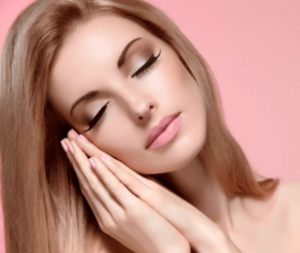
Here is why getting more shut-eye could be the secret tip to your best skin yet.
Sleep revives the skin’s natural balance and increases the effectiveness in skincare remedies; your skin literally reinvigorates itself during sleep.
Throughout the day when it’s light, the skin’s principal job is to keep hydrated and protected, at night when its dark and you are sleeping the skin is genetically processed to switch into regeneration mode; demonstrating that beauty sleep to be far more than a marketing game.
Getting the correct amount of sleep is the basis on which to build and sustain health, well-being and the best long-term way of safeguarding against stress and age-related disorders.
If you do not get enough sleep, not only does it leave you feeling tired, but you physically show the signs of a lack of sleep with puffiness under the eyes and dehydrated ‘tired’ skin.
Beat The Stress:
Not getting enough sleep also leads to stress, this, in turn, causes the adrenal glands to react and produce an overproduction of the stress hormone, cortisol. When this hormone is released, it stimulates the sebaceous glands to produce more oil, this, in turn, can lead to skin breakouts.
Stress generates a chain reaction that is the recipe for bad skin, and clinical studies have proven this to be the common denominator of many skin problems.
When sleep deprivation raises the levels of stress hormones, the body experiences ‘chronic’ stress, which leads to increased inflammation and subsequent hastening of the skin aging, all of this will also lead to any problems you have with acne worsening. Poor sleep routine can result in skin irritation and sensitivity, and the skin progressively loses its capacity to protect itself from all the chemicals, pollutants and grime it comes in contact with each day.
See On – hollandandbarrett.com
A Nights Sleep In Stages:
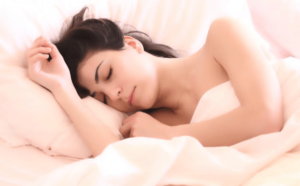
It is during the first few hours of sleep that your body will begin making the essential human growth hormone and tissue repair occurs – this comes from the pituitary gland. As we start to age, this hormone is necessary for the maintenance of young, youthful and radiant looking skin.
Without the release of this hormone, skin is not repaired from the damage and harm caused by daily pollution and hence begins the aging process.
The next two hours of sleep is when melatonin levels start to rise. Melatonin is a hormone that is accountable for managing your circadian rhythm, more commonly known as sleep/wake patterns.
Melatonin is also very important as it acts as an antioxidant that helps to protect the skin from damaging free radicals and helps regulate blood pressure, body temperature and cortisol levels.
During the final three hours of the sleep cycle, or the active REM (Rapid Eye Movement) sleep stage, levels of cortisol – also known as the stress hormone decrease.
The temperature of the skin also drops to its lowest point allowing muscles to relax and become immobile so allowing the skin precious recovery time from the remainder of the night’s sleep.
Read – Facts And Myths About Skin Care
Five Ways Your Appearance Suffers – Sleep For Better Skin
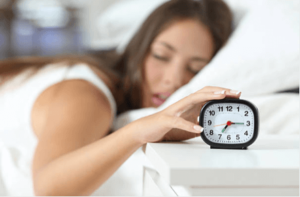
Here are the five ways that lack of sleep is ruining your skin and wreaking havoc on your appearance.
The Hair:
There is growing evidence that links stress and the onset of hair loss. Reports show that sleep deprivation is a relentless form of pressure on the body. All of this is primarily an indirect way of stating that lack of sleep and the increase in cortisol and stress levels can bring about premature hair loss.
Tired Skin:
We are now aware that a lack of sleep will increase your cortisol levels, and that Cortisol triggers inflammation, this breaks down the proteins in the skin that keep skin radiant, soft and smooth.
When you are feeling weak and tired the blood in your body is not circulating efficiently which usually results in a lack of oxygen in the blood. This lack of oxygen can result in your skin looking pale, pigmented, or blotchy.
Dry Skin:
Not many people are aware that while you sleep, you perspire, but it’s true. While you are asleep your body’s hydration rebalances and regains moisture, and so makes sleep a natural moisturizer and a great help to smooth out wrinkles on the skin.
Missing out on important sleep can affect the moisture levels in your skin and lower your complexion’s pH level. A skin imbalance is produced when your PH levels drop. This imbalance causes your skin not to provide the moisture it so badly needs, consequently leading to drier skin.
Tired Eyes:
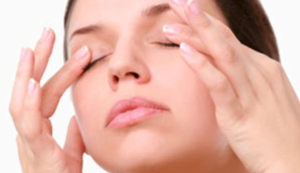
The skin area around the eyes is very delicate and thin, it is one of the most striking aspects of the face, but it can become very noticeable especially when skin isn’t looked after correctly. It is an area that requires special treatment and care, or a change in lifestyle to maintain a healthy appearance.
Dark circles are a widely known common symptom of not sleeping. A lack of sleep makes your blood vessel dilate leading to dark circles.
Wrinkles, bags, dark circles, and hooded eyelids are not very flattering and can alter our appearance drastically.
You may also find that not sleeping enough can result in reduced water balance that creates dark circles and puffy eyes.
Another thing that is not good for the appearance of your eyes is sleeping on your stomach as fluids can drain and catch in the trough under your eye and cause inflammation and puffiness.
Collagen production/aging process:
When you are not getting enough sleep, this directly affects the body and lead to chronic stress. Prolonged stress harms the quality of the collagen in the skin. Collagen is an essential ingredient in the elasticity and composition of the skin. When collagen is disrupted, the skin shows more obvious signs of aging by becoming thinner and less firm. When the skin is thin, its appearance is less smooth and subtle and showcases wrinkles more prominently.
Sleep And The Skin – Sleep For Better Skin:
Top Tips for better sleep and rest that can improve your skin:
Establish a bedtime routine and try to get at least 6-9 hours of sleep per night.
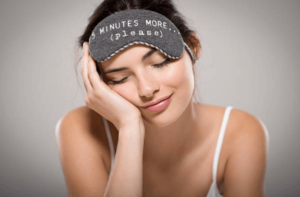
Limit alcohol and cigarettes before bed.
By limiting alcohol four to six hours before bed, avoiding caffeine and heavy meals before sleep, getting more exercise, and developing a regular bedtime and morning wake-up call, even on weekends, your skin will radiate in a healthy glow.
Keep up your sleep hygiene to promote a good night’s rest.
Get high thread count sheets and pillowcases to help avoid any pulling on the skin.
Wash your face nightly and apply skin care treatments which help promote a flawless complexion.
If you are prescribed a CPAP machine – Continuous positive airway pressure therapy is a standard treatment for obstructive sleep apnea. Researchers recently found apnea sufferers who use their CPAP machines look younger and fresher than those who do not, two good reasons to use it!
Most of us will usually experience different levels of sleepiness and alertness during the day. These are caused by two body systems: sleep/wake homeostasis and the circadian biological clock. In layman’s terms, homeostasis tells our body when we need sleep, and our circadian clock regulates the timing of periods of tiredness and wakefulness throughout the day.
If you still find yourself having missing out on sleep even after practicing good sleep habits have a talk to your doctor about your sleep problems and schedule a consultation with a sleep specialist — various sleep disorders include sleep apnea, narcolepsy, insomnia, restless leg syndrome, and more.
Skin Care Routine:
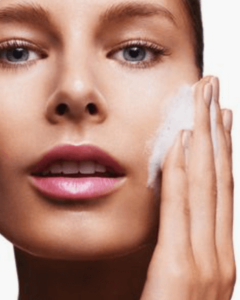
So, we now understand how important getting enough sleep is for our skin, but do not forget to allow sufficient time before going to bed to follow your good skin care routine.
At bedtime, the aim is to fix damage from the day’s pollution, sun, and stress, and to ensure you hydrate since you lose more water from your skin as you sleep.
Using a cleansing brush like the Clarisonic and a gentle face cleanser in lukewarm water to wash off grime and oil. Being extra careful not to overdo it with the cleansing brush. If you see any changes in your skin, minimize or stop usage immediately.
Pat or dab dry the face, you then administer a small amount of retinoid. Avoid the area close to the eyes, the corners of your mouth and creases of the nose. These creams are used to improve and heal the skin.
When you purchase ‘Over-the-counter’ retinoid products these contain ‘retinol’ or ‘retinaldehyde,’ However, retinoids that you get on prescription are higher strength and these can dry the skin out, so make sure a decent layer of facial moisturizer always follows it.
Day And Night:
The significant difference you find between daytime and nighttime moisturizers is that the former is lighter in consistency and often contain sunscreen. The texture of nighttime moisturizers may not feel or look aesthetically pleasing to the user, but they make skin soft and supple.
When searching for an evening facial moisturizer, it is essential to read the ingredients label looking for antioxidants, peptides, and vitamins C and A to help fix the ‘abuse’ from the day. You won’t go too far wrong if you use pure and simple hydrating products. Allow the retinoid do the anti-aging work!
Gently dab on eye cream after you put on your night cream.
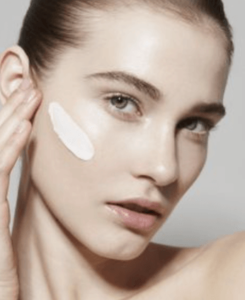 Including eye cream into your evening beauty routine is a perfect way to keep a youthful-looking appearance. It protects and hydrates the delicate skin around the eye.
Including eye cream into your evening beauty routine is a perfect way to keep a youthful-looking appearance. It protects and hydrates the delicate skin around the eye.
Eye creams made with caffeine, which helps to reduce puffiness, and niacinamide, which boosts moisture levels, keep skin from drying out and hold back those unwanted wrinkles!
Bonus tip:
Get some actual sleep for better skin!
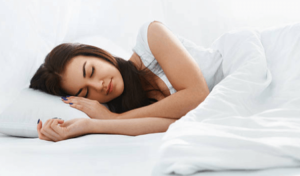
Remember, if the body doesn’t rest, the evening skincare products can only do so much!
How much sleep do you get each night, what tips do you have for coping with tired, stressed skin? Please leave any comments or questions below, and I will be happy to discuss them with you.
jo@yourskincarehelp.com
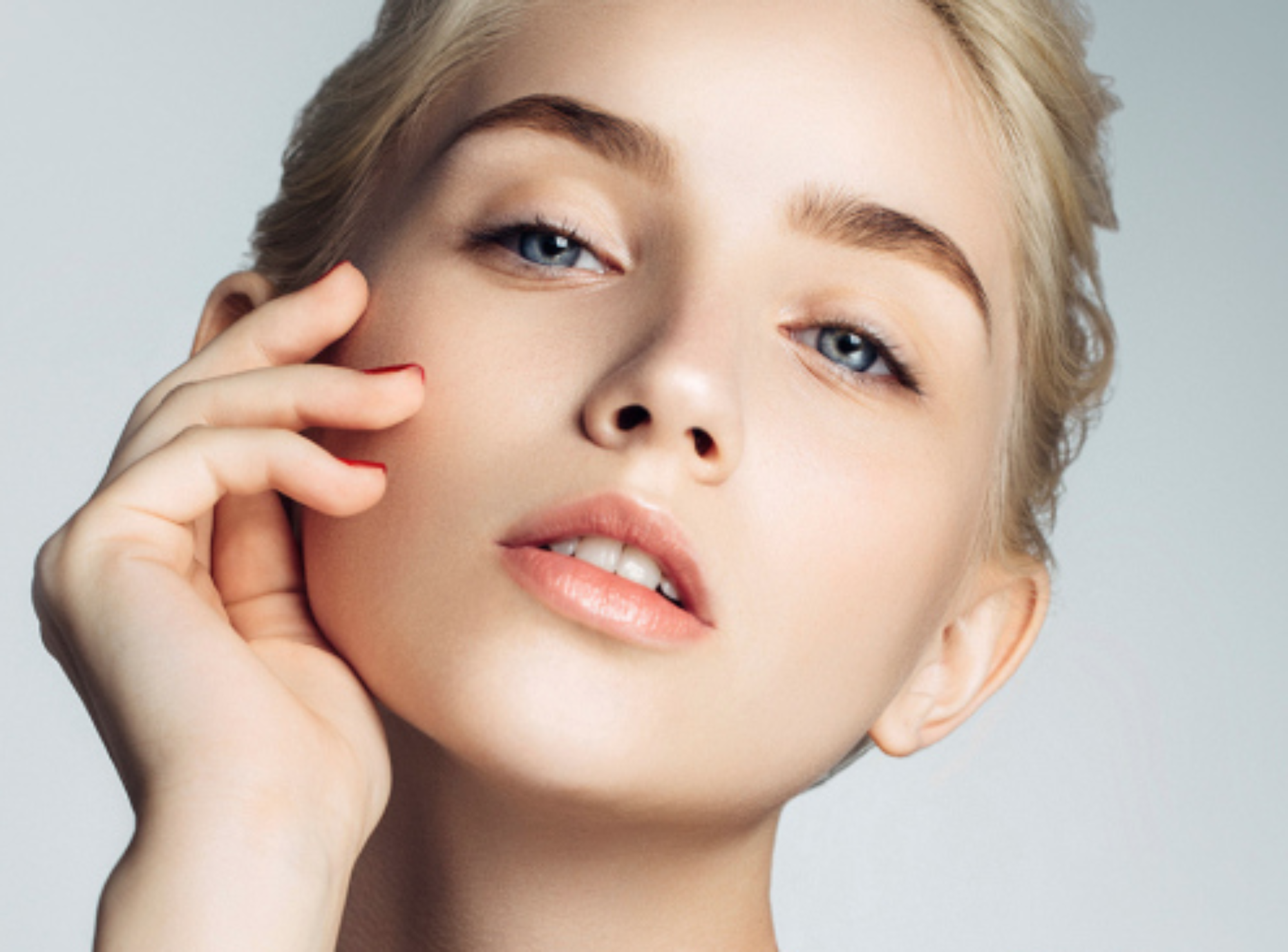
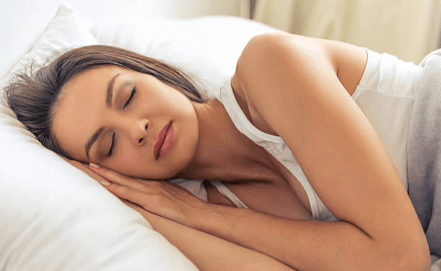
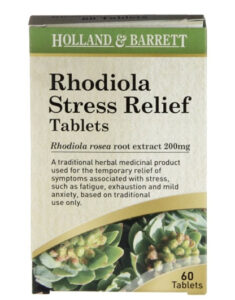
Thanks for this really informative article Jo. I did not realise just how much goes on with your body at night. I have been concerned I have not been getting enough sleep and I can relate to the symptoms you discussed, the dark circles and puffiness around the eyes. I get between 5 – 6 hours sleep per night, clearly that is not enough. Reading through your post on the general effects lack of sleep has on the body is a real motivator to be more disciplined about getting a good amount of sleep.
I always notice that my skin looks much better when I have adequate sleep and are not having too much caffeine. The other thing I have noticed is after a couple of days of drinking lemon water (e.g. I put lemon slices in my drink bottle) my skin looks even better. Am I imagining this or is lemon water for skin a real thing? I suspect the reason that more and more people are having a hard time getting a good sleep these days is largely due to screen time. I notice if I have spent an hour on my phone watching things and scrolling through social media in bed I am way more likely to have less of a good nights sleep. So I am really trying to curb that behaviour!
HI Liz, thank you for your comment. I too have heard people ‘rave’ about the benefits of the lemon drink. I do believe it can help skin appearance to a degree, Lemon juice contains vitamin C, which can boost your immune system; also you are gaining from the hydrating effects of water consumption as this can also have a positive impact on skin appearance. Lemon also helps in the detoxification of our organs, so contributing to a healthy glow in the skin. But, a big No No is putting pure lemon juice on to your skin, their are some people who ‘recommend’ putting is onto the face to help with acne, but never be tempted, Pure lemon juice can be very bad for your skin, causing severe damage.
Jo, I am very glad that I came across this article tonight. It makes me realize the importance of protecting my sleep time. I try to get 8 hours sleep each night on average. Yet, lately I have gotten lazy and been going to bed with makeup on. This article is just what I needed to make time to wash my face each night and to apply a night time moisturizer. Thank you for the excellent tips.
I know so much about that, I have been suffering of insomnia for many years. Right now I awake at 4 am, only with 4 hours of sleeping. My skin and my whole body show the results. Thank you for remind us the importance of a good sleep. It is also important to be outside at least 10 minutes during the day to take the natural light, it helps for better sleep.
Hi Maria, sorry to hear of your problem to get a good nights sleep, there really isn’t anything worse than lying in bed and unable to sleep knowing full well that you will ‘suffer’ for it the next day! As you say getting outdoors and lots of fresh air and activity can only help in your quest for a good nights sleep, along with cutting out late night snacks, alcohol and caffeine. Regards Jo.
Interesting post…I try to get at least 6 hours sleep each night, but find if I eat late it definitely disrupts my sleep…therefore have to be more disciplined with meal times. I can see the benefits when I make the effort with more energy and my skin looks healthier and my eyes don’t feel so dry and irritated. I will definitely be aiming to increase my sleeping time and giving more attention to my skincare routine…as you say Jo we need our beauty sleep.
Hi Jo, I was having trouble getting a good nights sleep for the last few months, I’ve read your tips, started by make a big effort of getting to bed an hour earlier, bought a new pillow, and that has made a huge help!… I cut down on having tea to near to bed time, and tried drinking camomile tea which I found helped. I now take more time with my skincare routine before bed by using night cream & serum therefore my skin has become healthier than its been in years..Thanks for your great advice Jo I’ve told family and friends about your posts and advice.
I quite often have trouble sleeping, this can sometimes go on for a week or more, and I really notice how much of an adverse effect lack of sleep has on my skin. Yes, we all need to take care of our skin and use the correct products to manage it, but, if we don’t take care of ourselves, and get quality sleep all the products in the world won’t help our skin.
How interesting this post has been. I didn’t realise sleeping on my front could be bad for my skin, and causing puffiness around eye area which I have been noticing! Also my skin could benefit from getting a few early nights after too much partying over the summer! More use of a day moisturiser and a night serum which I have been neglecting recently! Oh boy, time to get pampering myself before it’s too late ☺️
my skin always let’s me know when i haven’t been getting enough sleep, it will look dull, lifeless, it looks awful. Anyone who is having problems getting their complexion looking better should really try and increase sleep time, it really does help!
A very enlightening article on sleep ? it’s too easy to let the hours slip by and get into a bad habit of not getting quality sleep ? Reading this article has made me realise my bad habits will take its toll on my health and ? skin ? looking forward to getting some well needed beauty sleep ??. Alan
Interesting and detailed post. I’ve had trouble sleeping for past few months and since taking tips from your post like replacing my pillows and bad habits like eating late and watching the news before bed are a definite mistake! I have replaced tea for camomile tea which ii find a calming drink before bedtime.
If there was ever a time to try and get a minimum of 6 hours sleep a night it’s now! With the way the world is at the moment and the stress people have I doubt anyone is managing that in every night! So I for one will be trying some of these tips especially changing pillows and start by a little pampering with some moisturiser and eye serum as the central heating has definitely been drying on the skin over the winter months.
Great post and tips, I have changed my pillow for a firmer type and cut out caffeine after my evening meal for cammomile tea. Also make more time to cleanse and moisturise my skin morning and night which has helped both my sleeping and condition of my skin.